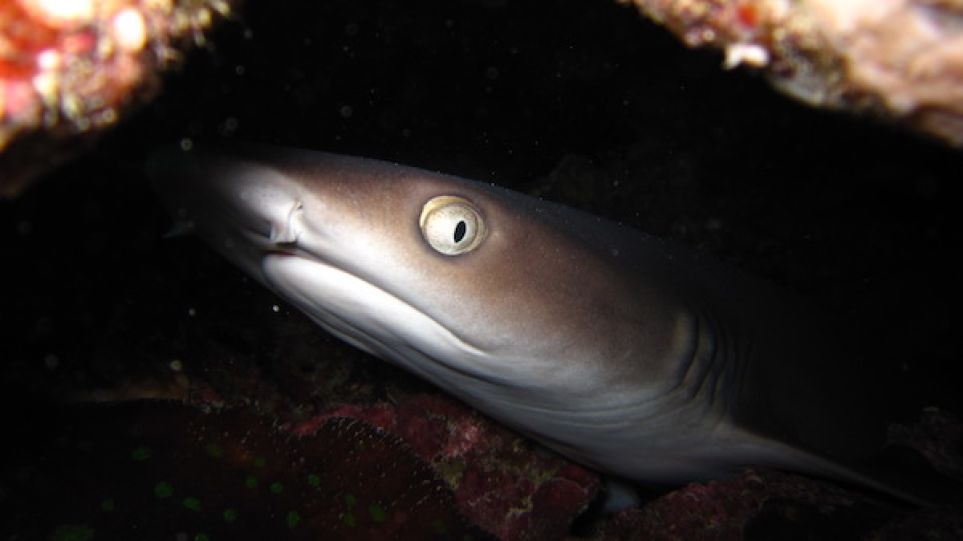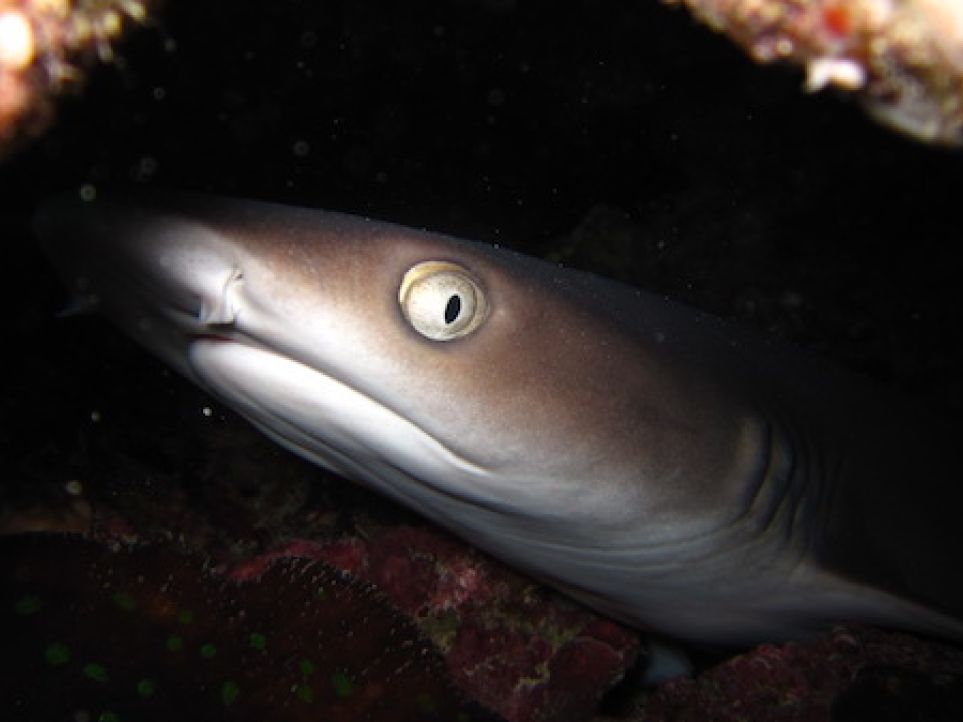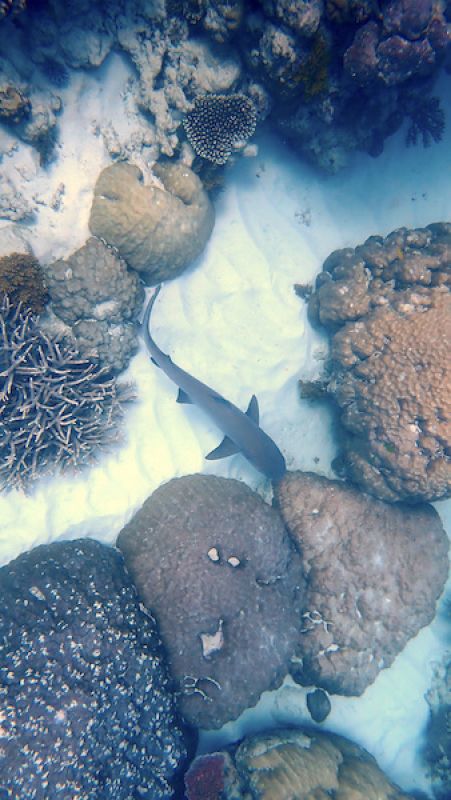Sharks, friend or foe on the Great Barrier Reef?.
SHARK! A cry in the water that usually elicits one of two reactions. Some swim as fast as possible away from the spotter, others towards. As marine biologists, we’re normally in the 2nd category, show me the sharks! But apart from the obvious allure of seeing something at the top of the food chain, what is it about these prehistoric fish that gets shark lovers so excited?
Us humans have the basic senses such as smell, taste, hearing, etc, but how cool would it be if we could use electroreceptors to detect things we cannot see? Sharks have a unique way of detecting prey, using built in electroreceptors around underside of the head to detect tiny electric signals that are given off by all living things when their heart beats.They can also use it like a precise GPS, locating the prey so well that they know exactly where to position their head and mouth for that final attack. Along with their immense sense of smell makes them an effective and efficient predator not to be messed with.
Despite being such an amazing predator, sharks have an interesting mechanism that makes them almost useless in certain circumstances. By flipping a shark or ray upside down, it causes the animal to go into a state called tonic immobility, basically it goes into a trance like state and can be like this for up to 15 minutes! Scientists use this strange loophole to aid with their research, by flipping the shark over, they can study it without causing the animal undue stress. Something else that uses this amazing trick though are Orca’s….
Now if you know anything about Orcas, it is how intelligent they are and how well they learn. Orca’s have been seen on a few occasion around the world, flipping sharks and rays upside down and holding them in position, basically causing them to suffocate as sharks need the continuous movement to get oxygen.
Sharks working as the top predator on a reef is also crucial to the ecosystem of a reef, an imbalance would affect whole communities in the reef systems, changing the dynamic of the food chain. The Great Barrier Reef is highly complex and biodiverse ecosystem with white-tip and black-tip reef sharks being the most common species spotted by snorkellers and divers.
In Yellowstone National Park, grey wolves were hunted almost to extinction in the area and over the years, larger populations of elk and deer to thrived in numbers resulting in overgrazing and causing a total imbalance of the local ecosystem. When the wolves were reintroduced after 70 years, the ecosystem quickly healed itself and the numbers of all animals, up and down the food chain, fell into a natural and healthy balance.
Sharks are the equivalent of the Yellowstone wolves. They control populations of grazing and larger predatory fish promoting species diversity and balancing the food web. If reef sharks disappeared, fish populations would increase causing a reduction in food from the overconsumption of food. This would make reefs unstable and promote algae and bacteria growth with which, the coral cannot compete.
So you see what we mean? Sharks are epic. They are ancient creatures, have extremely complex hunting systems and even some strange quirks to their biology that we can use to study them safely. Not only this but they are beyond crucial to the health of the ocean ecosystem. So, next time you hear the cry ‘SHARK’, join us in swimming towards them!
By Daran Holmes, May Intern at Marine Discoveries
About the Author

Abby Seymour

Marine Discoveries
Organisation

85 Lake Street Cairns,
Queensland. 4870
Australia
+61 (0)7 4031 7794
ABN: 93 643 207 845
Marine Discoveries acknowledges, recognises and respects the Elders, families and forebears of the the Bama Peoples – the Aboriginal rainforest people who are traditional custodians/owners of the lands that cover our region. We also acknowledge, recognise and respect other Aboriginal and Torres Strait Islander people who call our region and the Great Barrier Reef their home.
ABN : 93 643 207 845









